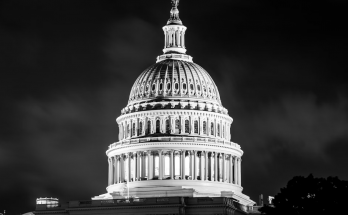Bête noir to established economists Steve Keen tells the Mint why Brexit ended a stupid policy but the government line on trade agreements is nonsense and an economic zombie apocalypse awaits some major nations.
For an author whose first book was greeted by the economics establishment with, in his own words, “rabid” and “abusive” reactions Professor Steve Keen’s second foray into questioning mainstream economics fundamentals demonstrates commendable resilience. And reveals perhaps a degree of mutuality in his view of his peers.
His ambition in Debunking Economics was clear from its title. His personal favourite part of that publication, he tells The Mint, was where he explains how Neoclassical economists showed that one of the key ideas in Neoclassical microeconomics, the downward-sloping demand curve, was actually illogical illogical. He explains:
Clearly in the real world it’s fairly obvious if price rises demand will fall, but when the neoclassical theory tries to prove this, it fails to do so unless it makes patently absurd assumptions, including that changing the distribution of income doesn’t alter consumption.
“So they’re stuck in this weird quandary now where they teach something, which is mathematically false, because if they taught what was mathematically true, they wouldn’t have a superficially logically watertight argument.”
It’s no surprise then, that with his assertions that central planks in the accepted economics wisdom are unsound, Keen has attracted considerable flak. And he is unflinchingly merciless in his counters to established economists’ responses to his work. He says they have made “absolute mathematical errors” and “blithely confused, contradictory arguments,” in their bids to undermine his thinking.
Keen clearly has no trepidation when marching into the guns of controversy. But does he feel his challenge to the accepted truth has left him in the wilderness? Is he disheartened?
“I never expected the mainstream to honestly engage with me, and they’ve simply lived up to my expectations.”
“No. It’s exactly what I expected because I wasn’t trying to convince them. I was trying to convince a new generation,” he says.
Keen says he wrote Debunking when he did because the Dotcom bubble and the bubble in private debt at the turn of the millennium led him to expect events were conspiring to support his ideas. He says he saw: “a fair likelihood of a crisis coming up, and in a crisis that’s when you might get listened to.”
He says failures in economic policy have alerted the public to “something being wrong with economics,” and possibly led to students saying what they were being taught had “no relevance to the economy they were actually experiencing,” and “there must be something better.”
So the first edition of the book was clearly excellently timed. And Keen feels he hit the mark in his bid to alert the new wave of economists: “Most students I find in the rethinking economics movement already have a copy of Debunking Economics. So I think I was extremely successful on that front. I never expected the mainstream to honestly engage with me, and they’ve simply lived up to my expectations.”
The public focus on the cause and prevention of economic crises has arguably never been more intense. There is a natural, broadly felt anxiety as the 2008 financial crisis continues to leave its mark. That anxiety is exacerbating the apprehension that Brexit is generating. But Keen has spoken publicly of his positive outlook on the prospects for the UK following its departure from the European Union.
What advice might Keen offer prime minister Teresa May’s government?
“Well, some of what they’ve done already is what I would be doing,” says Keen.
He celebrates the end of the ambition held by former chancellor George Osborne to run a government surplus. When that was “kicked out the window on the day that Brexit was voted for” – it marked the end of a “pretty damn stupid” policy.
“When the government runs a surplus it actually destroys money,’ says Keen. Added to an ambition to grow the economy at the same time took it into stupid territory he says.
“The devaluation was another policy I’d recommend. It’s happened anyway with about a 20% fall in the exchange rate, which gives the potential for some industry to be redeveloped.
Keen has a third piece of policy advice. And it’s a departure from May’s current trajectory although it resembles her reported backstop position.
He calls for a “modern debt jubilee” – using government money creation capability to reduce the debt of the household sector and the business sector. It’s a move that he sees as underpinned by actions that are not dissimilar to the line being proposed by the new president of the US.
“You’d have to do it in such a way that the benefit of that was restricted to the domestic currency,” Keen says. He goes on: “So that would probably involve having to put in tariffs because if you stimulate the economy, you want the stimulus to stay in your own economy, rather than be leaked into other economies. That’s some of the what Trump is proposing.”
Keen’s tack departs still further from the UK government’s line on free trade agreements which he says are “nowhere near as important as the mainstream makes them out to be.” But he proposes a route that sticks to a firm industrial strategy that follows the recent realignment unveiled by May. But his direction veers away from the restrictive conditions that come with trade agreements.
“The mainstream is all about specialisation, and improving efficiency of our specialisation, that basically summarises the whole of neoclassical economics. But when you look at the empirical research, that’s not what causes economies to grow,” says Keen.
“The financial sector’s claims on the rest of the economy have gone through the roof. But it’s actually parasitic. It’s not a creative force.”
“What enables them to grow is a diversified industrial structure that enables different products to be combined into new ones. So on that basis, you forget about the trade stuff, and focus on the stuff they’ve all ignored which is industrial policy.”
He says that focus should be on encouraging innovation; getting funds to innovative firms; and providing revenue for government researchers to take on the beginnings of big projects that the private sector does not want to take on. “Those are the sorts of things you need to do rather than the nonsense of free trade deals.”
So will the government rethink its plan for trade deals? Keen says “No. They’ll go ahead and do it.”
In Keen’s view, signing trade agreements makes politicians appear to be doing something. “It looks like: “Oh we sign this agreement we improve our economy, and here I am signing a document with anther politician. Aren’t we important.’”
Were the UK to eschew trade deals, Keen accepts that tariff controls would be a likely necessity to counter the threat that businesses based outside the UK would move away. Post Brexit, the globalised economy, he says, presents a “big risk.
“And that’s why you go into it making sure if you do any local stimulus that it stays in the local economy. In a country like England that’s running such a huge trade deficit right now, the odds are that if you stimulated local demand, you might actually find yourself leaking that demand into foreign products, rather than it turning up in your own domestic firms. Therefore, some things like tariff controls may be necessary.”
When pondering the risk of global players quitting the UK, clearly the scariest prospect for the government would be significant financial sector departures. Keen differs. His advice would be: “those sorts of footloose industries, if they say they’re going to leave, you basically pack their bags for them.”
He describes as “so-called” the UK’s growth attributable to the financial sector over the past 30 years. “The financial sector’s claims on the rest of the economy have gone through the roof. But it’s actually parasitic. It’s not a creative force. So some things you’d be very painful to lose in the transition, but it certainly has not been a way to sustain growth.”
Keen says UK the debt of households and non-financial sector firms to banks was 60% of GDP in 1981 and it never exceeded 75% during the preceding century. Since 1981 it peaked at 195% of GDP and is now about 170%. “That is all due to letting the financial sector rip,” he adds. Over the same period the UK went from having a manufacturing sector that contributed some 23% of GDP to 11% while Germany’s remained at 23%.
He says the growth following liberalisation under Margaret Thatcher was because: “You spent 1.3 years worth of GDP effectively additional to what was actually earned by the economy over about a 30 year period.”
So it’s at the opening of a post-Brexit era of risk, uncertainty and change in the UK that Keen has launched a second book: “How can we avoid another financial crisis?” Is this one to be as prescient as Debunking?
Keen says yes. And puts a date on it.
He expects to see some countries hit financial crisis in the next three years, and wanted to highlight those before they happened. Through a “very cohesive theory of the role of credit in capitalism,” he says the book provides an explanation for why crises occur in particular countries, and where other crises might be expected, and why. He anticipates that some countries will experience financial crisis in the next three years.
Where does he get the three years from? Keen bases his three-year forecast on the level of a country’s national private debt and the likely rate of growth in credit. “When you look at the maximum level that any country’s ever carried in terms of a private debt to GDP ratio for the household sector plus the nonfinancial corporate sector, the maximum you’ve ever seen is about 240% of GDP.
“You’ve got a number of countries bouncing around 220% right now including Australia, and Canada, South Korea, Belgium, and so on. If you gave them three years they’d be hitting 270% and that’s never happened before, and there are good reasons why. It’s not sustainable.”
In a chilling nod to the zombie apocalypse TV blockbuster The Walking Dead, Keen says the world divides into:
• the walking dead of debt;
• zombies to be; and
• Germany.
The walkers, Keen warns, are post debt crisis countries that are now either deleveraging or amid slowly rising debt from a very high floor. They include America, UK, Spain and most of Europe.
The zombies to be, he says, are bound to have a financial crisis, because they swerved 2008 by borrowing more money. They, in time will be walkers.
“Then there are the ones who are immune given their current economic situation. That’s basically Germany, Germany and Germany,” Keen explains.
Germany has achieved its position, according to Keen, by running an enormous trade surplus, and paying down its private debt, and its government debt. “It’s about the only country on the planet that’s doing that because the scale of its trade surplus is so huge, that it can manage to pay down its sectoral balances.”
Nevertheless, Germany can crash, says Keen. Not because of its own private debt, which is low and falling thanks to its 9% of GDP trade surplus; but because credit-based demand from other countries for German goods will evaporate when their private debt bubbles burst.
“To have a crash you’ve got to have a high level of demand being generated by credit in the first place. You can’t jump off a cliff when it’s one metre tall and break your neck. It’s better to jump ten metres if you’re going to break your neck. So for a debt crisis to occur you need credit to be playing a large role in demand as well as being very high at the time.”
Keen offers examples: In 2008 America’s debt was roughly 1.6 times GDP when the crisis began, and credit was adding 15% a year to GDP. So it went from +15% to -5% which was why the crunch was so severe. It was worse for Spain, not quite so bad for England.
Keen ‘s arguments with the prevailing neoclassical economists are imbued with considerations of ethics and behaviour but absolute measures through mathematics underpin much of his thinking. At the same time, in his communication of his ideas, he departs from the purely quantitative, preferring to explain through discourse rather than equations.
His recommended reading would include out of print Dynamic Economic Systems by John Blatt – “a mathematician doing history-economic thoughts on first principles, and really, I think, nailing it better than any other writer I read.” He is a great admirer of the late Hyman Minsky – a fellow iconoclast economist and former mathematician whose reputation moved from the margins to centre stage after his forecast was played out in the 2008 financial crisis.
Given the sweep and ambition of his outlook in it seems natural that Keen is looking to unify economics with fundamental scientific principles: “We need a theory of value that explains where surplus output comes from, which means we have to say it’s consistent with the laws of thermodynamics, and that’s one of the things I’m working on now: producing an energy-aware theory of value. You need a shared theory of value. As yet, even non-orthodox economics doesn’t have that.” He sees the need for a fuller understanding of climate change as an overarching concern and is currently looking to model the economy “from an ecological point of view rather than an equilibrium one.”
Meanwhile we all perhaps should watch carefully the developments around us over the coming three years.



